Lyrics of Lowly Life by Paul Laurence Dunbar (RARE, First Edition), 1896 ✍️ 📜🇺🇸
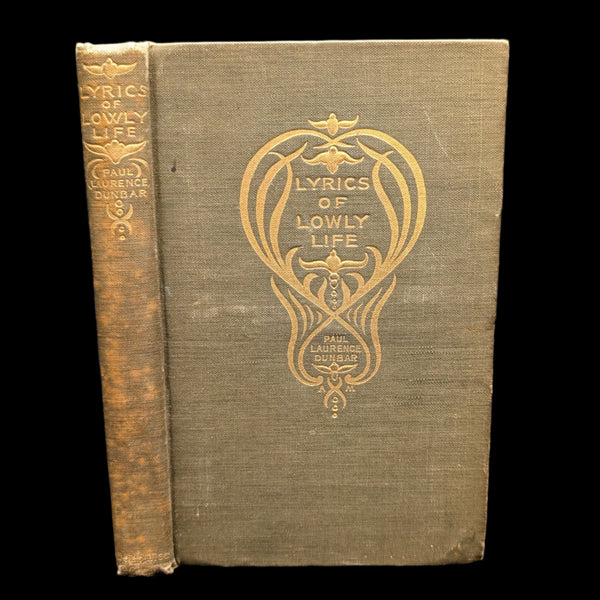
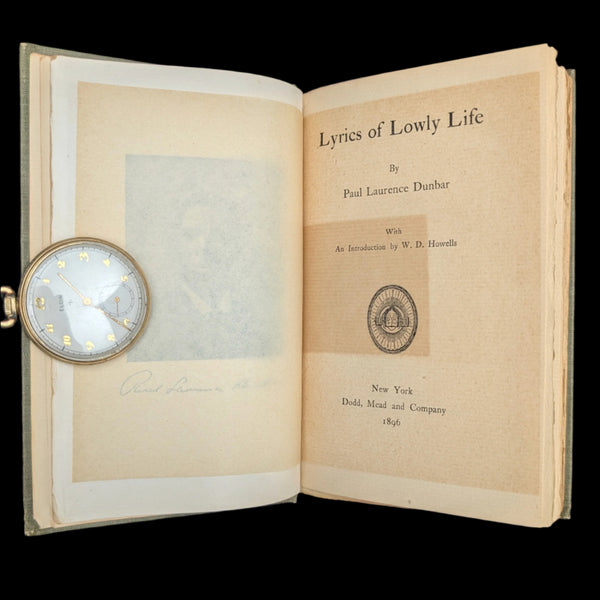
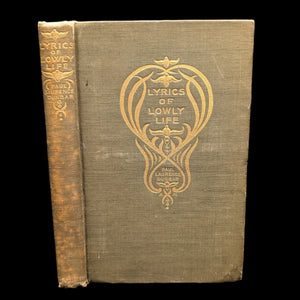
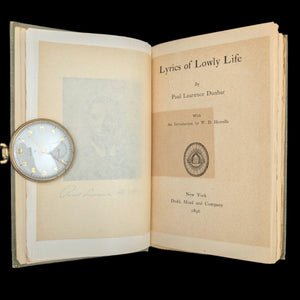
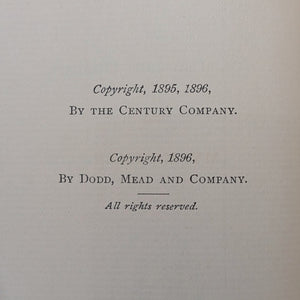
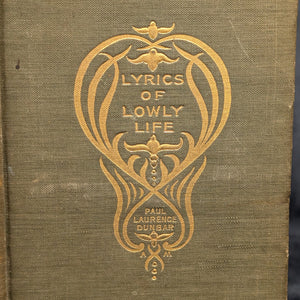
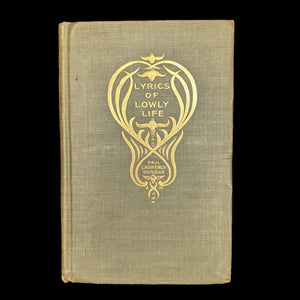
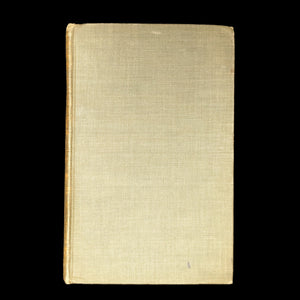
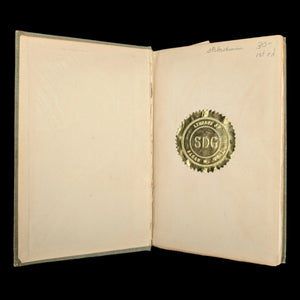
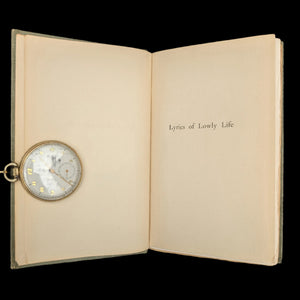
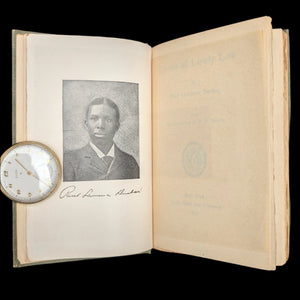
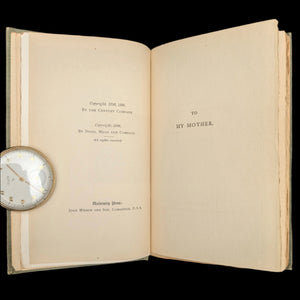
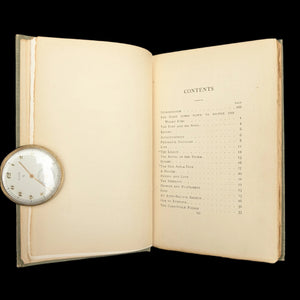
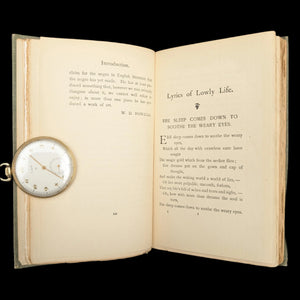
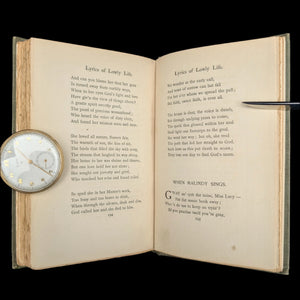
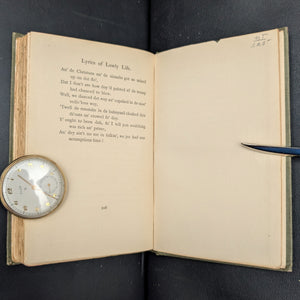
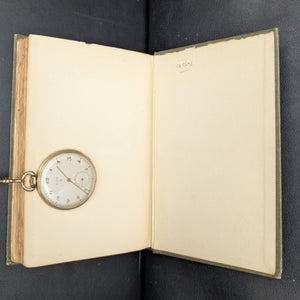
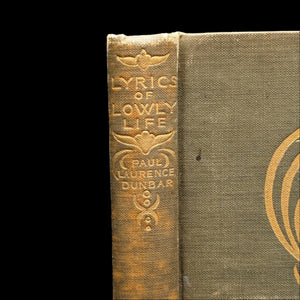
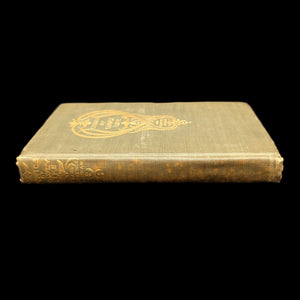
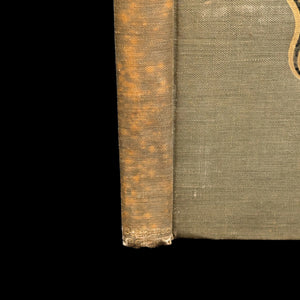
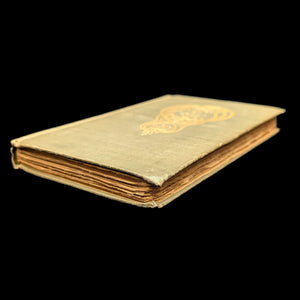
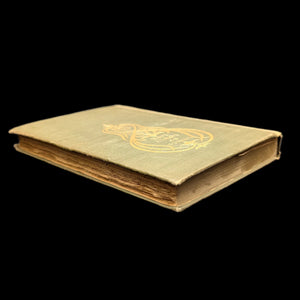
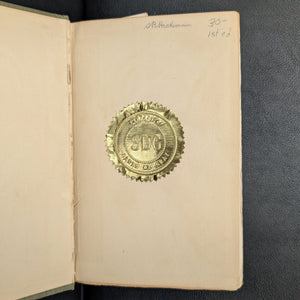
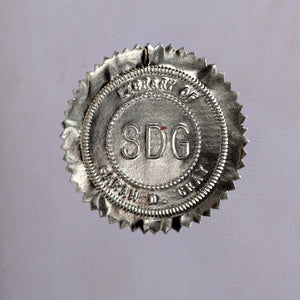
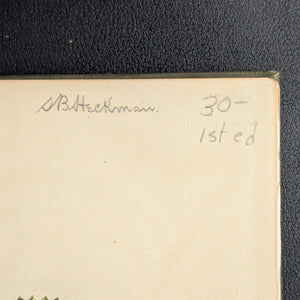
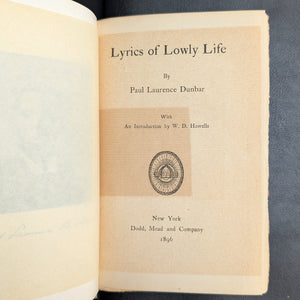
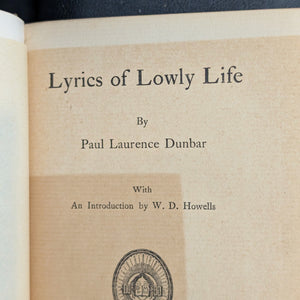
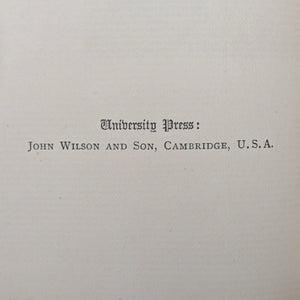
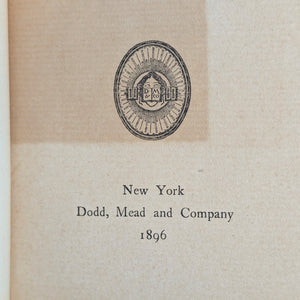
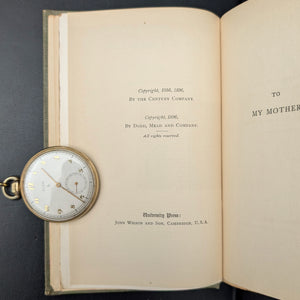
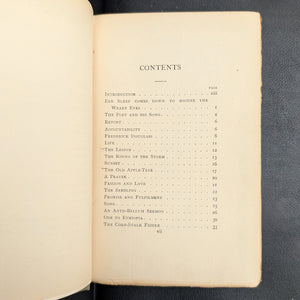
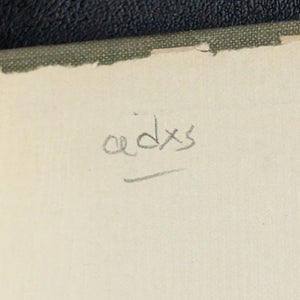
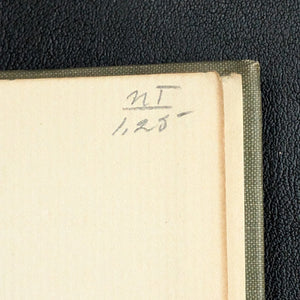
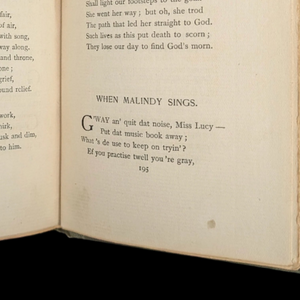
This listing presents a rare and historically significant first edition of Lyrics of Lowly Life by Paul Laurence Dunbar, published in 1896 by Dodd, Mead and Company.
Dunbar, a son of formerly enslaved people, became one of the first African-American poets to achieve national and international acclaim.
This book, with an influential introduction by literary critic William Dean Howells, established Dunbar as the most important Black poet of his time. It is a genuine literary artifact that is a cornerstone for any serious collection of American literature.
This volume is a pivotal work in American literary history, as it introduced a major African-American voice to a wide audience. The poems are a mix of conventional literary English and dialect verse, a stylistic duality that would define much of Dunbar’s career.
The book's very existence in the post-Reconstruction era of the 1890s, a period of institutionalized segregation and violence, makes it a powerful statement of resilience and artistic excellence.
2. About the Book 📖✍️✨
Lyrics of Lowly Life is a collection of 105 poems, many of which were previously published in Dunbar's earlier self-published volumes. The poems cover a range of subjects, from traditional themes of love and nature to more subversive social commentary hidden within the dialect verse. This collection showcases Dunbar's mastery of poetic form, including his use of ballads and sonnets, as well as his command of dialect.
The book's most notable feature is the duality of its poetic style. The dialect poems, while popular with white audiences for their perceived charm, often contained a hidden subtext of "signifying" on the hypocrisy of the day.
In contrast, his poems in standard English, such as the famous "Ode to Ethiopia," are direct and powerful expressions of racial pride and protest.
3. About the Author/Maker ✍️🏛️✨
Paul Laurence Dunbar (1872-1906) was born in Dayton, Ohio, to parents who had been enslaved in Kentucky. Despite facing racial discrimination that limited his opportunities, he persevered, publishing his first works while working as an elevator operator.
His high school classmate and friend, Orville Wright, printed Dunbar's weekly newspaper, the Dayton Tattler, in 1890.
Dunbar’s life was tragically short. He died at the age of 33 from tuberculosis, but in his brief career, he was a prolific writer, publishing not only poetry but also novels, short stories, and essays.
His work explored the complexities of African-American life in the late 19th century, earning him a place as a pioneering voice in American literature. This book was published by Dodd, Mead and Company, a prestigious New York-based firm known for the quality of its publications and its willingness to publish a diverse range of American authors.
4. Historical/Political Era Context 🌍🕰️📜
Published in 1896, this book is a product of a deeply complex and turbulent period in American history. It was the post-Reconstruction era, a time when the legal and social gains of African-Americans were being systematically dismantled through institutionalized segregation, disfranchisement, and violence.
The year 1896 is particularly notable as the year of the Plessy v. Ferguson Supreme Court decision, which upheld the constitutionality of racial segregation under the "separate but equal" doctrine.
The book's publication in this specific context makes it a powerful cultural document. Dunbar’s poetry, even in its more romantic and sentimental forms, exists against the backdrop of this harsh reality.
The poem "We Wear the Mask," one of his most famous, perfectly captures the emotional and psychological toll of living in a society that demanded a constant performance of deference and cheerfulness from African-Americans.
5. The Ideal Collector 💡🧐🏛️
This is a curated holding for a specific class of collector who values intellectual and cultural history above all else. The ideal purchaser is a scholar of African-American literature, a historian of the post-Reconstruction era, or a private collector building a focused collection of early American literary works.
This book would be a centerpiece in a library dedicated to the history of civil rights or American poetry.
The ideal owner would be someone who understands the significance of Paul Laurence Dunbar's place in the literary canon and the historical context of his writing. This book appeals to a collector who recognizes the singular nature of a work that survived a period of intense racial oppression.
6. Value & Rarity 💎✨🏛️
As a rare first edition from 1896, this book is a unique and non-replicable asset. The value is derived from its market scarcity and its documented history as a pivotal work of American literature. The book's importance in the history of African-American writing significantly enhances its value, placing it in a category of holdings typically found in institutional collections.
The presence of a clear "1st ed" inscription from a previous owner and the specific ex-libris bookplate adds a layer of verifiable history that increases its desirability. The book’s well-preserved state, including its tight binding and clean interior pages, further justifies its premium price.
7. Condition 🔎📚✨
The book is in a state of remarkable preservation for its age.
-
The binding is original and solid, with age-appropriate rubbing and wear that adds to its authentic character.
-
The pages exhibit the natural process of toning and some foxing, which is normal for paper from this period.
-
The overall condition, while not pristine, reflects a book that has been cared for and cherished, with its structural integrity remaining solid.
8. Translation of Inscriptions/Ephemera (Conditional) ✍️📜🔤
This book contains a handwritten note on the front endpaper and an embossed ex-libris seal. The inscription, written in pencil, appears to be from a previous owner documenting the edition and price. The seal is for a known owner.
-
The Inscription: "S. B. Heckman. 30- 1st ed". A second inscription in pencil reads "adxs". A third inscription in pencil reads "NT / 1.25".
-
The Seal: The seal is for the "LIBRARY OF SARAH D. GRAY," which also contains the initials "SDG".
9. Fun Facts & Unique Features 🤓📜🤩
-
Paul Laurence Dunbar's parents, both formerly enslaved, instilled in him a deep appreciation for storytelling and the power of words. His mother, Matilda, learned to read specifically to help him with his schooling, and his father, Joshua, was a veteran of the Civil War.
-
In a surprising twist of history, Dunbar was a high school classmate of aviation pioneers Wilbur and Orville Wright. The brothers printed Dunbar's short-lived weekly newspaper, the Dayton Tattler, in 1890.
-
His poem "We Wear the Mask" is considered a quintessential expression of the Black experience in the post-Reconstruction era.
-
Dunbar's success paved the way for future generations of African-American writers, including the poets of the Harlem Renaissance.
10. Supporting Information 🏷️📦💰
-
Title: Lyrics of Lowly Life
-
Author/Maker: Paul Laurence Dunbar
-
Year: 1896
-
Publisher/Foundry: Dodd, Mead and Company
-
Place of Origin: New York, USA
-
Format/Binding: Hardcover
-
Edition: First Edition
-
Rarity: Rare

